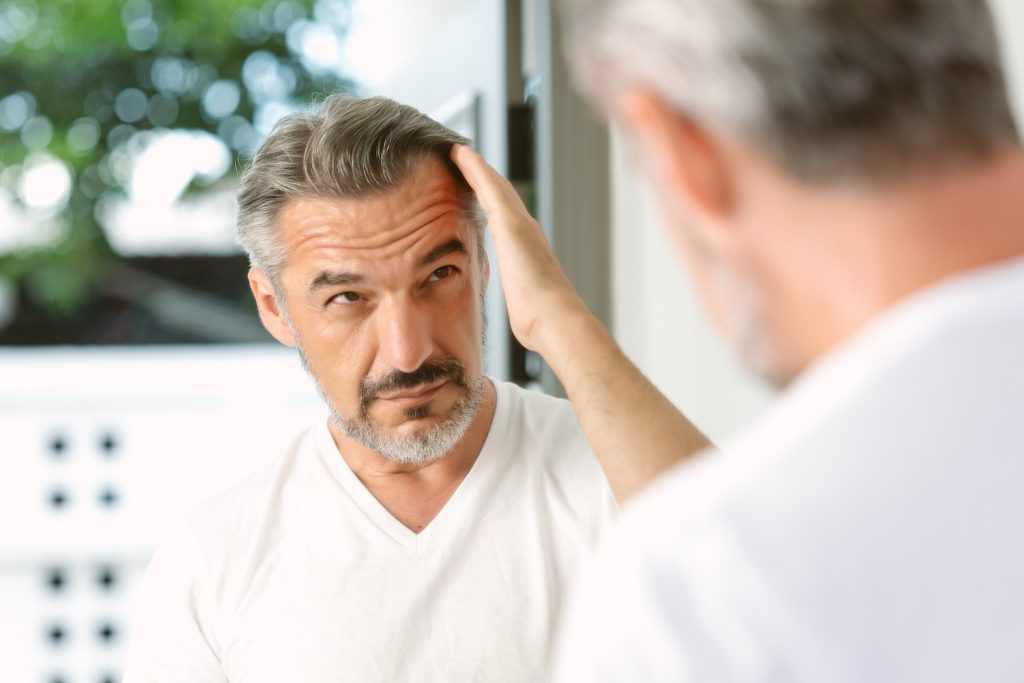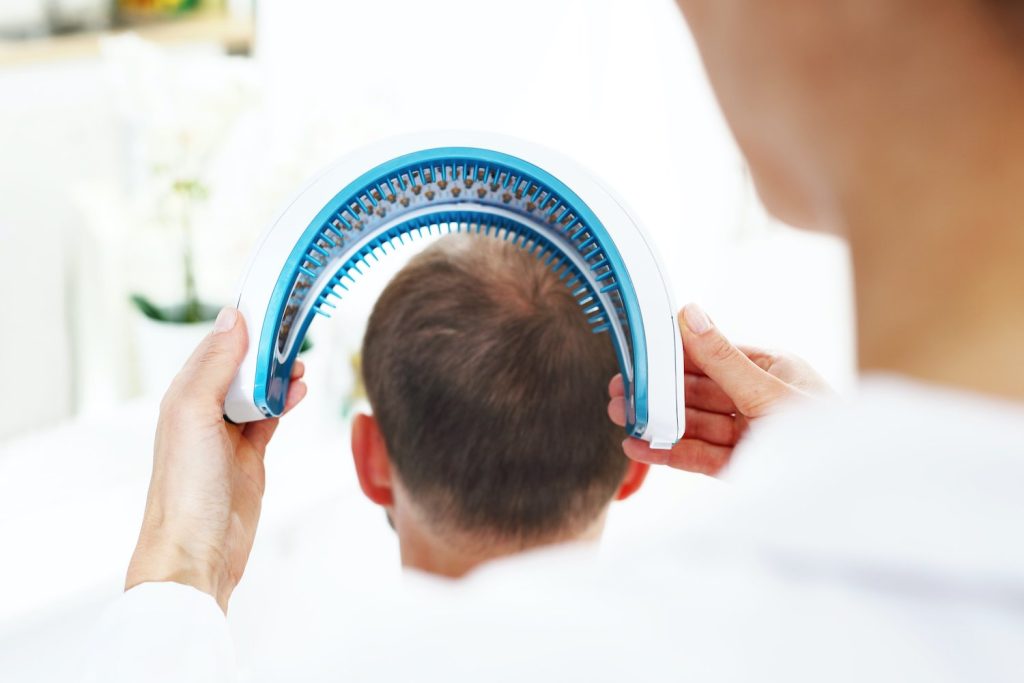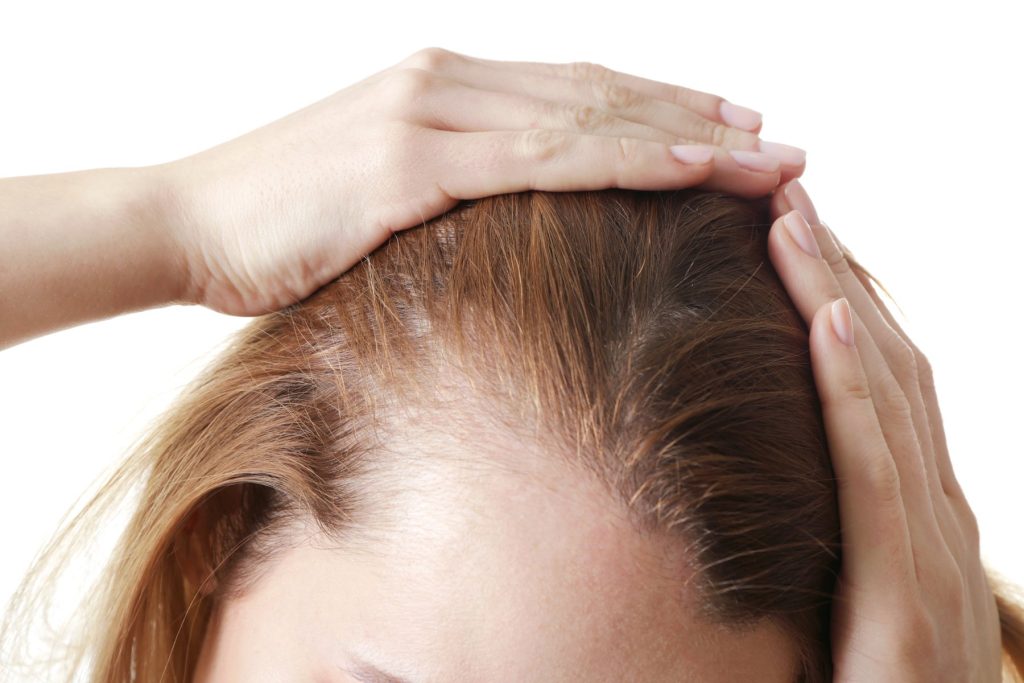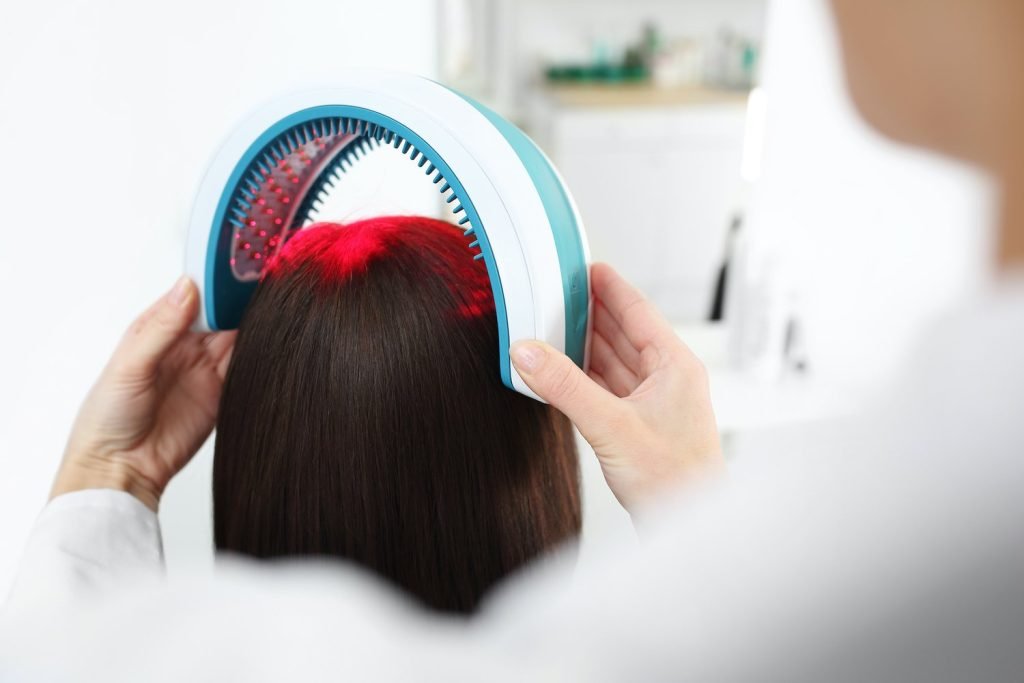- Hairline Clinic - Hair Loss Treatment in Akron and Cleveland Ohio - Schedule FREE Consultation
- 330.633.5225
- CONTACT US
Learn Which Medications Have Hair Loss Side Effects

Every patient reacts differently to prescriptions. While many drugs can cause hair loss, it’s usually not permanent – and nutrition might mitigate the loss.
It’s common knowledge that individuals undergoing chemotherapy treatment for cancer experience significant, if temporary, hair loss. Less known is how several other types of medications, administered for a variety of conditions and diseases, can cause hair loss as well.
Unlike chemo hair loss – which not only is temporary, but often regrown hair comes in with a thick wave, even with individuals who previously had straight hair – sometimes the loss from medications is long term. Doctors and pharmacists should discuss this with patients in advance. Seeking hair loss treatments after the fact can be tricky.
What kinds of medications can literally make your hair fall out?
According to dermatologists – the medical specialty that typically treats hair loss – various types of hair loss (thinning, shedding, complete fall-out) can be caused by a variety of medications:
- Accutane (used for acne)
- Antacids (cimetidine or Tagamet, an over-the-counter medication for acid reflux)
- Antiarrhythmic drugs such as Amiodarone
- Anticoagulants, such as warfarin (Coumadin)
- Antidepressants such as Celexa, Lexapro, Prozac, Paxil, Pexeva and Zoloft, all selective serotonin uptake inhibitors (SSRIs)
- Birth control medications containing progestin, as well as Depo-Provera injections, skin patches (Xulane), implants (Nexplanon), and vaginal rings (NuvaRing)
- Blood pressure medications, such as captopril and lisinopril)
- Cholesterol lowering drugs, such as statins (atorvastatin and simvastatin, but not rosuvastatin)
- Colchicine, taken for acute gout attacks
- Steroids (testosterone, progesterone, Depo-Provera, Provera, Prometrium)
IMPORTANT: Not all of these prescriptive drugs will cause hair loss in women and men. With some pharmaceuticals, hair loss is experienced by as few as 1% of patients taking it.
What determines if medication-induced hair loss is short-term or forever?
Physicians and medical societies always stress that with almost every medication, side effects as well as the efficacy of the medication will vary. Genetic medicine is changing that, although its primary applications at present are in identifying types of cancer treatments that work best for people with similar genetic makeups.
For birth control medication hair loss, for example, family histories of hair loss are considered a contributing factor. A mitigation strategy is to lean toward medications that contain more estrogen than progestin (which might also stimulate more hair growth).
In some instances, the hair loss is temporary even if the individual continues taking the medication.
It’s important to remember that nutrition plays a role in hair health, with or without medications. During times of illness the appetite can wane, leading to nutritional deficiencies. At least one study found that increasing intake of iron, biotin, and zinc might make up for a deficiency. That study, a randomized controlled trial published in the French journal J Cosmet Dermatol (Le Floc’h, Cheniti, et al., Laboratoires inneov, R&D, 2015), found that significant gains were experienced by women taking omega 3 and omega 6 supplements along with antioxidants.
The study subjects were healthy women, not taking any medications, so translating this to medication-induced hair loss is an imperfect comparison and therefore inconclusive. But it suggests nutrition can play a role in hair health. Consult with a doctor any time you plan to mix over-the-counter supplements with prescriptive medications.
We provide individualized hair loss treatments and solutions for men and women at our hair loss treatment clinics in Cleveland and Akron Ohio.
If you are a man or woman suffering from medication-related hair loss conditions, we provide industry-leading, individualized hair loss treatments and hair loss solutions to men and women in Cleveland and Akron, OH. Schedule a FREE confidential consultation and evaluation at our Akron Hair Loss Treatment Clinic or our Cleveland Hair Loss Treatment Clinic by calling 330.633.5225 today!
Hair Loss Treatments
Men's Hair Loss Solutions
Women's Hair Loss Solutions
Men's Hair Loss Solutions
Ready for change? Call our hair loss experts at (330) 633-5225 to schedule a FREE appointment.
HairLine Clinic is an industry leader providing individualized hair loss treatments to men and women experiencing hair loss in Akron and Cleveland, Ohio.










